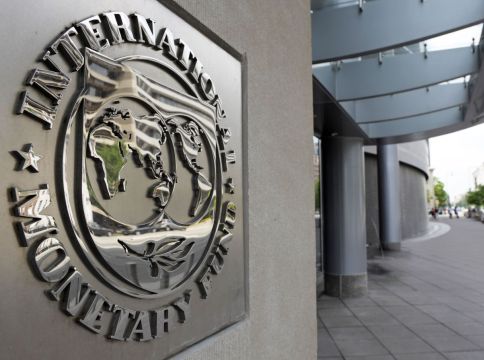IMF suggests Uzbekistan to improve investment climate

By Kamila Aliyeva
The International Monetary Fund (IMF) suggested Uzbekistan to improve the investment climate and protect the vulnerable segments of the population in its next reform step, according to the end-of-mission report of the IMF.
IMF delegation led by Albert Jaeger paid a visit to Tashkent during November 7–16 in order to discuss the authorities’ plans to continue reforms of the economy and to update the macroeconomic framework.
The IMF mission welcomed the authorities’ continued efforts to adopt a more effective macroeconomic stabilization framework and to improve the economy’s investment climate, in line with the priorities of the development strategy of the President of the Republic, the report said.
The prospects for economic growth of Uzbekistan "as a whole remain favorable", but, as experience of other countries in transition testifies, there are certain risks that could affect economic growth at this stage of economic transformations , the Fund’s experts noted.
The IMF said that the liberalization of the foreign exchange market in early-September was a significant first step, which seemed to be welcomed by all stakeholders.
Fiscal policy will have to continue to play the leading role in stabilizing the economy. In this context, the mission noted that it will be important that fiscal policy, defined as including all on- and off-budget operations, will need to remain tight going forward to help contain inflationary pressures.
“Following the liberalization of the foreign exchange market, the banking system remains well-buffered. But there was agreement that banks’ asset quality and liquidity needs to be monitored carefully, especially against the backdrop of the restructuring of the large state-owned enterprise sector," the report said.
The mission welcomed the authorities’ focus on keeping inflationary pressures in check. To be able to more effectively control inflation, the Central Bank of Uzbekistan (CBU) is overhauling its monetary framework and is enhancing its operational capabilities.
In its October report, the IMF has kept the forecast for GDP growth in Uzbekistan in 2017 and 2018 at the level of 6 percent annually. Uzbekistan's inflation will grow from 8 percent in 2016 up to 13 percent in 2017. The growth of inflation in 2018 will be at the level of 12.7 percent.
Fund experts predict that the current account balance of Uzbekistan’s balance of payments in 2017 will amount to 0.9 percent of GDP against 1.4 percent in 2016. This figure will amount to 0.3 percent in 2018.
Earlier, the IMF emphasized that Uzbekistan can experience inflationary pressures in connection with the currency reform.
The inflation forecast increased under the influence of various factors including the devaluation of the soum. The Central Bank of Uzbekistan devalued the national currency – soum – by almost two times on September 5, setting the official exchange rate of US dollar at 8,100 soums/USD compared to 4,210.35 soums/USD on September 4.
Simultaneously, restrictions were lifted for legal entities and individuals to convert the national currency.
Uzbek President Shavkat Mirziyoyev ordered to remove restrictions from September 5 on currency exchange for the population. Previously, he announced upcoming liberalization of the banking sector and transition to a system of free currency conversion.
Currently, Uzbek people can buy foreign currency solely on plastic payment cards, which can be used abroad without any restrictions.
Earlier, individual entrepreneurs and farmers in Uzbekistan were allowed to withdraw foreign currency from their bank accounts.
In addition, legal entities can purchase foreign currency in banks without restrictions for payment on current international transactions - for the import of goods, works and services, repatriation of profits, repayment of loans, travel expenses and other non-trade transfers.
At the time, physical persons can only sell currency to banks through exchange offices.
---
Kamila Aliyeva is AzerNews’ staff journalist, follow her on Twitter: @Kami_Aliyeva
Follow us on Twitter @AzerNewsAz
